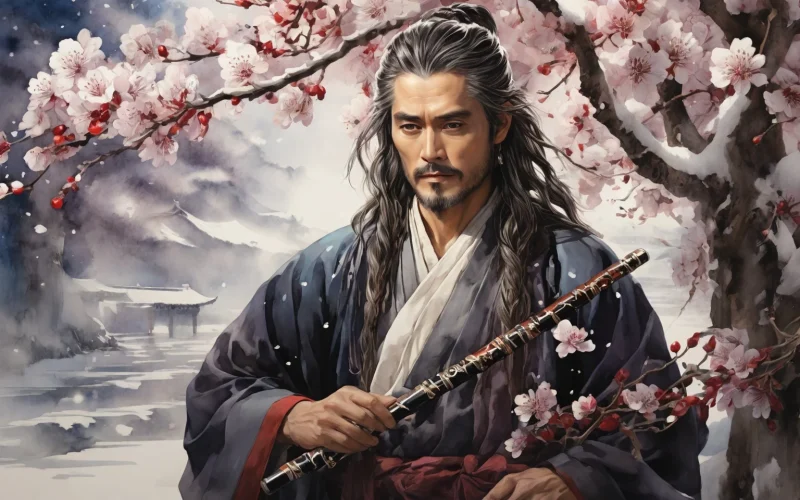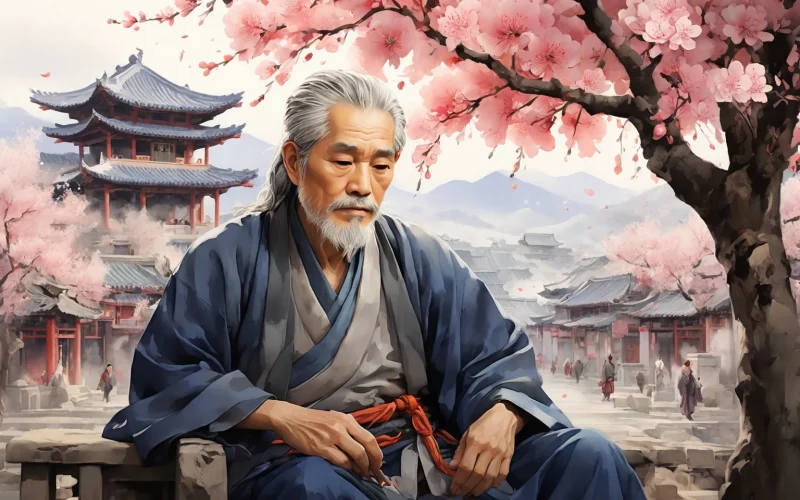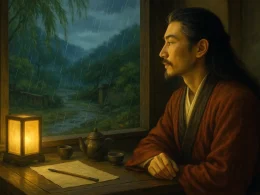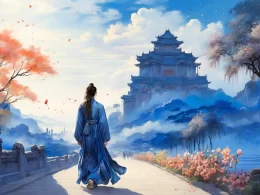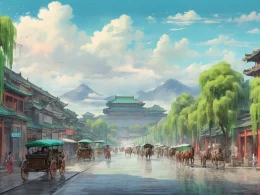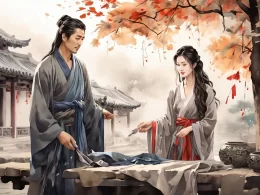I've sharpened my sword for ten years;
I do not know if it will pierce.
I show its blade to you today.
O who has any grievance? Say!
Original Poem:
「剑客」
贾岛
十年磨一剑,霜刃未曾试。
今日把示君,谁为不平事?
Interpretation:
This poem was written by Jia Dao during a period when his political ambitions remained unfulfilled. Through the image of “ten years sharpening a sword,” the poet expresses his desire to showcase his talents. The poem not only displays Jia Dao’s artistic skills in poetry but also implies his lofty aspirations. Using the sword as a metaphor, Jia Dao conveys his persistence toward ideals, ambitions, and his yearning for opportunities. This use of an object to express one’s will creates a distinctive personal style in the poem.
First Couplet: “十年磨一剑,霜刃未曾试。”
(It took ten years to forge a sword, its frosty blade gleaming with cold light, yet its sharpness remains untested.)
This couplet, through the imagery of sharpening the sword, subtly suggests the poet’s years of self-cultivation and honing his skills. The untested sword symbolizes the poet’s talents, which have not yet been showcased. It expresses a longing for an opportunity to demonstrate his abilities. Despite being “untested,” the power and confidence hidden within the sword are evident, reflecting the poet’s eager anticipation for the chance to prove himself.
Second Couplet: “今日把示君,谁为不平事?”
(Today I present the sword to you, tell me, who has a grievance that needs righting?)
In this couplet, the previously sheathed sword becomes a symbol of heroic spirit. The poet confidently displays his talents, expressing his willingness to act for justice and confront injustices. The sword, now drawn, conveys the poet’s strong sense of responsibility and his ambition to wield his talents for a greater cause.
Writing Features:
- Using Objects to Express Will:
The poet cleverly integrates his ambitions, ideals, and unexpressed talents through the image of the “sword.” This method of using objects to reflect inner emotions gives the poem a clear theme and abundant emotion. - Concise Language with Deep Meaning:
The poem’s language is brief yet powerful, particularly in conveying the poet’s urgent desire to showcase his abilities. Each line is succinct and directly expresses the poet’s grand aspirations. - Heroic and Confident Tone:
The poem portrays the poet’s determination to use his talents to serve the people and confront injustice. The sword, as a symbol, reflects the poet’s heroic spirit and confidence.
Overall Appreciation:
This poem uses the “sword” as a concrete symbol to express the poet’s political aspirations, reflecting Jia Dao’s unfulfilled desires to contribute to the country. The poem’s artistry lies in its concise, powerful language, clear theme, and profound meaning. Through minimalist sentence structures and vivid imagery, the poet condenses complex emotions and ideas into short, impactful verses, showcasing his distinctive poetic style.
Insights:
This poem, through the imagery of “sharpening the sword” and “presenting the sword,” reminds us that we should constantly hone our talents in life, prepare ourselves, and wait for the right moment. When the opportunity arises, we must seize it without hesitation and confidently face challenges. The poem also encourages us to have confidence in our abilities, be ready for possible opportunities, and stand up for justice when needed, using our skills to make a difference.
Poem translator:
Xu Yuan-chong (许渊冲)
Jia Dao (贾岛), 779 - 843 AD, was a native of Daxing, Beijing. He was a monk in his early years, and later traveled to the eastern capital, where he was recognized by Han Yu and returned to secularism. Jia Dao's poems were mostly about the scenes of loneliness and sadness, and he was famous for his bitter poems at that time.






